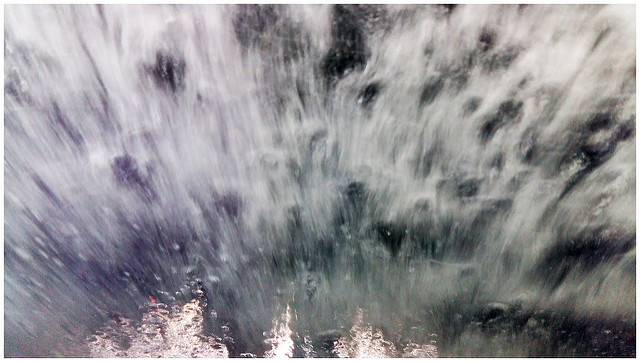Many technological advances have taken place since when men looked at extreme natural events with reverential fear, and with the certainty that a divine fury was behind them; but every time nature strikes our lives with its devastating force, the smallness of the human condition becomes again overwhelmingly evident.
The latest hurricanes that have hit Cuba and other Caribbean islands, Mexico and the United States, have left a trail of death and destruction of unthinkable dimensions.
Their names, Harvey, Irma, Katia, Jose, seem innocuous; but they themselves are synonymous with death and destruction. They leave pain and despair behind them, and astonishment and fear, before them. If that were not enough, an earthquake of magnitude 8.2 shook Mexico, sowing panic in a country that still remembers the 1985 earthquake, which caused the death of more than ten thousand people.
They are the most recent and most striking manifestations of the fury of nature; but in recent months, floods, typhoons and droughts have caused thousands of deaths and left an apocalyptic panorama of destruction in different parts of the globe.
As Harvey drove Texas to its knees and headed toward Louisiana, South Asia plunged under unusually intense rains. Almost two thousand five hundred villages were completely disappeared in India, and almost two thousand victims were recorded between India, Nepal and Bangladesh. The damage to agriculture is enormous, and many animals died; among them, some protected species of Kaziranga’a National Park.
At the same time, in Europe and in several parts of the United States an intense drought has destroyed crops; and in many cases has fueled fires as destructive as the water from hurricanes.
Some months ago, torrential rains caused by El Niño caused almost 150 deaths, and floods devastated human lives, crops and homes in Colombia and Brazil.
The fury of nature strikes rich and poor countries with equal strength, but the majority of the deaths and victims are among people of low resources. In developed countries, those who do not have the means to get away from places of greater risk are more affected; while in the poorest areas of the planet, personal vulnerability is mixed with a poor environment, and governments with little capacity to deal with disasters, much less to prevent them. And, should that not be enough, everywhere, with very few exceptions, the lack of urban development policies linked to the interests of a few, aggravates situations and always makes large urban centers more vulnerable.
These deaths weigh on the conscience of inefficient and corrupt local administrators, but also on those who, because of their status as economic and / or political power, define environmental policies that do not know boundaries and borders, and affect everyone.
Beginning with the premise that there is no money that can replace human life, damage to houses, roads, power stations, agriculture and livestock are so huge that it is difficult to understand how a ruler can stay calm without doing everything at their disposal to mitigate the causes that will undoubtedly aggravate extreme events such as hurricanes and droughts.
While it is true that climate change is not the main cause of the formation of hurricanes, it is also undeniable that a heightened sea level, the warming of sea surface waters, increased evaporation, and moving currents from north to south, are effects due to global warming and represent the gasoline that fuels hurricanes, typhoons and storms, making them larger, more powerful, slower in their displacement, more deadly and annihilating.
Many studies have come to this conclusion, proving that it is no coincidence that hurricanes and typhoons around the world have become more aggressive in the last two years and that they will become even stronger and more devastating if we do nothing to stop and control global warming.
It is an alert coming from the World Meteorological Organization (WMO) and, in particular, from one of its members, Kerry Emmanuel, MIT meteorology professor and co-director of the Lorenz Center, who, after conducting laboratory simulations, said that the hurricanes will intensify in a warmer climate, and also in some cases will cause havoc by the force of the winds and, in other cases, by the large amount of water they will pour on the earth.
But the many voices of scientists have so far failed to penetrate the rubber wall of the administration of President Trump, who does not want to see or hear, and decided instead to cut the budget for scientific research and, in particular, for studying the evolution of atmospheric conditions.
Donald Trump’s budget bill foresees a 17 percent cut in funding for the US National NOAA agency, a cut that would prove deadly for one of the major institutes; not only for the future of the United States, but for the whole world. Unfortunately, silencing the voice of scientists does not diminish the effects of a reality that becomes increasingly serious.
Whenever extreme natural phenomena strike a population, there is a spontaneous solidarity that saves lives even in the worst conditions, despite the late and insufficient responses of some governments. In these moments of particular pain and devastation, the importance of cohesion among human beings becomes more evident.
Perhaps the time has come to seek that same solidarity and cohesion at the international level, to implement actions and policies that help prevent global warming and deepen adaptation to climate change that can no longer be avoided. To achieve this, it is important to demonstrate peacefully and to vote for politicians who show their concern for the environment at national and local level. But that is not enough.
We need to become aware, at the individual level, of the seriousness of the situation and of the importance of our own actions. Everyone must assume their share of responsibility. It is our planet we are talking about; and taking care of its life is the duty of us all.
Photo Credits: Petras Gagilas ©


